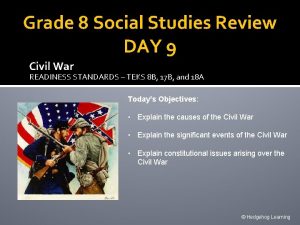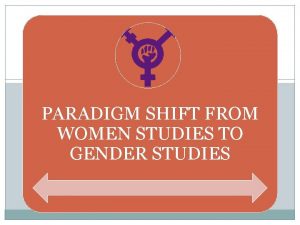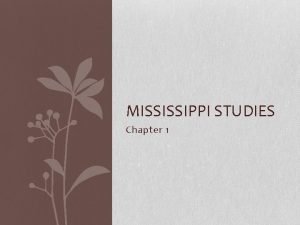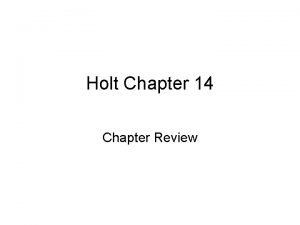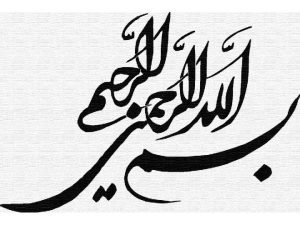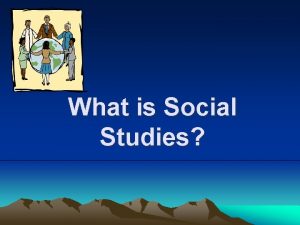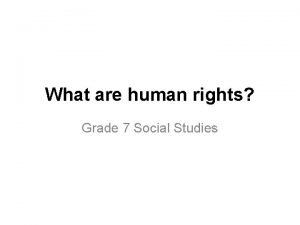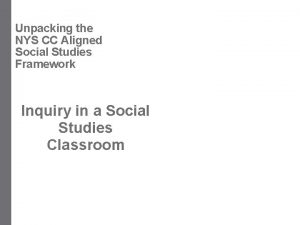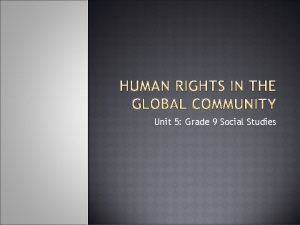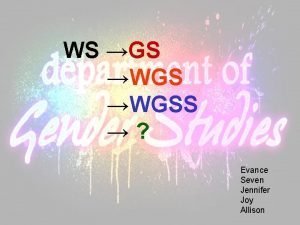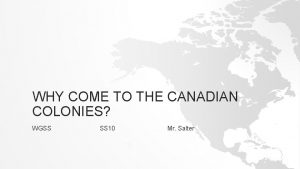Social Studies 9 Review Social Studies 10 WGSS



















- Slides: 19

Social Studies 9 Review Social Studies 10 WGSS Mr. Salter

The Social Study of Revolutions ▪ English Revolution ▪ French Revolution ▪ Industrial Revolution ▪ The Fight for North America ▪ American Revolution

English Revolution 1640 -1660

English Revolution 1640 -1660 ▪ English Civil War (1642 – 1651) ▪ Commonwealth (1640 – 1660) ▪ Charles II (1660)

English Revolution: Civil War ▪ series of armed conflicts and political plots between Parliamentarians ("Roundheads") and Royalists ("Cavaliers") over England's government. ▪ First conflict (1642 – 46) & Second conflict (1648 – 49) were King Charles I’s supporters against supporters of the Long Parliament ▪ Third conflict (1649 – 51) was between King Charles II’s supporters and supporters of the Rump Parliament ▪ Ended with a victory for the Parliamentarians at the Battle of Worcester on September 3 rd, 1651

English Revolution: Civil War cont. ▪ Resulted in: – Trial and execution of Charles I – Exile of Charles II, his son – Replacement of the monarchy (under Oliver Cromwell)

Oliver Cromwell ▪ Born: April 25 th, 1599 ▪ Died: September 3 rd, 1658 ▪ In charge of England from 1653 – 58 ▪ Signed the death warrant of Charles I ▪ Put in new laws (blue laws) ▪ Did not follow the rules himself ▪ People hated him and his rules

French Revolution

French Revolution 1789 – 1799 ▪ Social and political upheaval ▪ Abolition of the French monarchy ▪ Establishment of a secular and democratic republic that became authoritarian and militaristic (dictatorship) ▪ Radical social change based on liberalism and Enlightenment ▪ Rise of Napoleon Bonaparte ▪ Armed conflicts with other European countries

French Revolution cont. ▪ Execution of Louis XVI ▪ Lead to the spread of liberalism, radicalism, nationalism, socialism, feminism, and secularism throughout the world

Napoleon Bonaparte ▪ Born: August 15 th, 1769 ▪ Died: May 5 th, 1821 ▪ Emperor of France from 1804 – 1814 ▪ Built a large empire during his Napoleonic Wars ▪ Depicted as a short little man, but was actually 5’ 6”, which was taller than the average French citizen at the time – Propaganda by the English to make him seem less threatening and more of a joke

Industrial Revolution

Industrial Revolution 1760 – 1820 ▪ Transition to new manufacturing processes ▪ Hand production methods -> machines ▪ Chemical manufacturing ▪ Iron production manufacturing ▪ Steam power ▪ Machine tools ▪ Factories

Industrial Revolution cont. ▪ Began in Great Britain ▪ Resulted in an increase in average income, and the population began to exhibit sustained growth ▪ Standard of living increased ▪ Second Industrial Revolution (1840 – 1870)

Fight for North America

Fight for North America ▪ Fur trade and the desire to control North America ▪ Main groups associated in the fight: – – Great Britain United States colonies France Spain ▪ All of the groups wanted part of North America for their own reasons, mostly for profit of some sort (Empires)

American Revolution

American Revolution 1765 – 1783 ▪ Thirteen American Colonies rejected the British monarchy and founded the United States of America ▪ Thirteen Colonies: Delaware, Pennsylvania, New Jersey, Georgia, Connecticut, Massachusetts Bay, Maryland, South Carolina, New Hampshire, Virginia, New York, North Carolina, and Rhode Island the Providence Plantations ▪ Colonists (Patriots) fought against the British Rule, such as during the Boston Tea Party ▪ Some Colonists remained loyal to Great Britain (Loyalists)

American Revolutionary War (1775 – 1783) ▪ Patriots (with French, Spanish and Dutch allies) went to war against the British and the Loyalists ▪ Patriots were lead by George Washington (the future 1 st President) ▪ Eventually resulted in the abolition of slavery
 Day 9 grade 8 social studies staar review
Day 9 grade 8 social studies staar review Paradigm shift from women studies to gender studies
Paradigm shift from women studies to gender studies Virginia studies 4th grade
Virginia studies 4th grade Ms studies chapter 1
Ms studies chapter 1 Chapter review motion part a vocabulary review answer key
Chapter review motion part a vocabulary review answer key Ap gov review final exam review
Ap gov review final exam review Nader amin-salehi
Nader amin-salehi Systematic review definition
Systematic review definition Narrative review vs systematic review
Narrative review vs systematic review Social thinking social influence social relations
Social thinking social influence social relations Social thinking social influence social relations
Social thinking social influence social relations Absolute location meaning
Absolute location meaning What is living together in social studies
What is living together in social studies Human rights grade 7
Human rights grade 7 Nys standards social studies
Nys standards social studies History grade 9 unit 5
History grade 9 unit 5 Renaissance definition social studies
Renaissance definition social studies Social studies notebook cover
Social studies notebook cover Map formula
Map formula What is the grand exchange social studies
What is the grand exchange social studies
